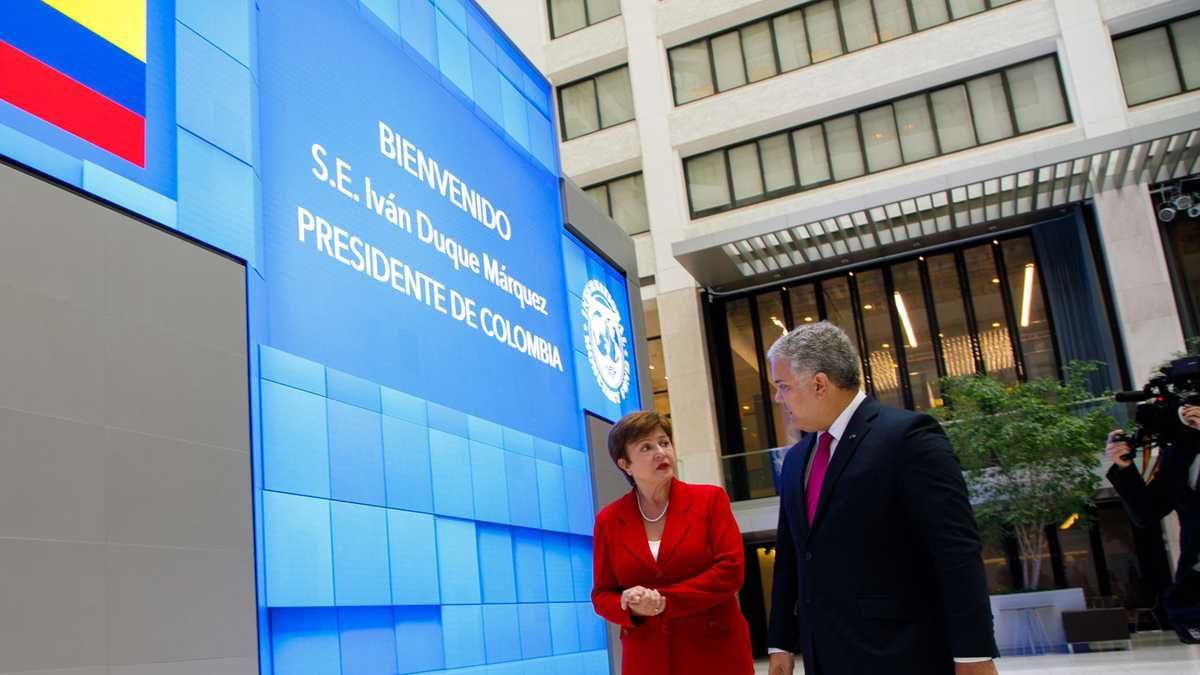In an analysis of the economy colombian carried out to mark an agreement in 2019, the agency recommended to the government of Ivan duque to eliminate fuel subsidies and cut electricity subsidies through a strategy of “segmentation by income”, despite recognizing in the same report (but in another section) that those same subsidies did not represent a large expenditure in terms of proportional to gross product compared to other expenses. The objective was none other than to achieve the usual fiscal balance, given the possibility that the Colombian public accounts would fail to meet the deficit targets for that year.
The story, in a reduced version, tells that in mid-2019 Colombia signed an agreement to obtain financing from the IMF. This agreement had, from its genesis, the “conditionality” component that the Fund itself usually imposes to ensure that no program can go beyond “what was agreed”. Therefore, a series of observations were included, including the classic “recommendations” for structural reforms. The subsidies appear there.
For example, for fuels, the IMF recommends “depoliticizing the pricing system.” For this, it requests that a weighted average of export parity and import parity prices be used.
What is remarkable is that the IMF itself seems to bring the Colombian government closer to a particular recipe for reducing electricity subsidies, very similar to the one that Minister Martín Guzmán negotiates for Argentina: segmentation.
From the report, which he was able to access Ambit, Several contradictions arise from the IMF itself but only one conclusion: the ultimate objective is always a fiscal adjustment, and tied to this, the “elimination of fiscal pressures.”
REFORM OF ENERGY PRICES IMF COLOMBIA.pdf
For example, the report points out that “electricity price subsidies are distorting and their economic costs are higher than their fiscal costs” arguing that “low electricity rates encourage excessive household consumption and reduce incentives to adopt behaviors of energy saving “. As mentioned, after recommending the elimination of subsidies, the interesting thing about the case is that in another section it recognizes the totally marginal cost that this policy implies, that is, only 0.3% of GDP as part of the deficit.
On the other hand, the IMF itself fully analyzes the structure of subsidies, considering that it would only be acceptable to use them for households that are below the poverty line through a social rate and asking for a full rate for the rest. of the universe of households, and even criticizing the municipalities that do not update their records to be able to segment according to the new scheme. “About a third of total electricity price subsidies currently benefit households in the top four income deciles due to a strata-based targeting system that does not take income distribution into account,” he says, adding “ more than 90% of households receive subsidies for electricity prices and a third of that percentage belongs to the top four deciles of income… ”.
In addition, it suggests updating and reducing this structure since “… the allocation of strata is based only on the exterior characteristics of the dwellings and does not take into account variables associated with household income. In addition, the municipalities are responsible for updating the strata system, but many do not … “
It should be clarified that, in the case of Colombia, the existence of cross-subsidies in electricity is allowed (higher-income households compensate lower-income households with higher rates), in Argentina this scheme is not.
Source From: Ambito
David William is a talented author who has made a name for himself in the world of writing. He is a professional author who writes on a wide range of topics, from general interest to opinion news. David is currently working as a writer at 24 hours worlds where he brings his unique perspective and in-depth research to his articles, making them both informative and engaging.




